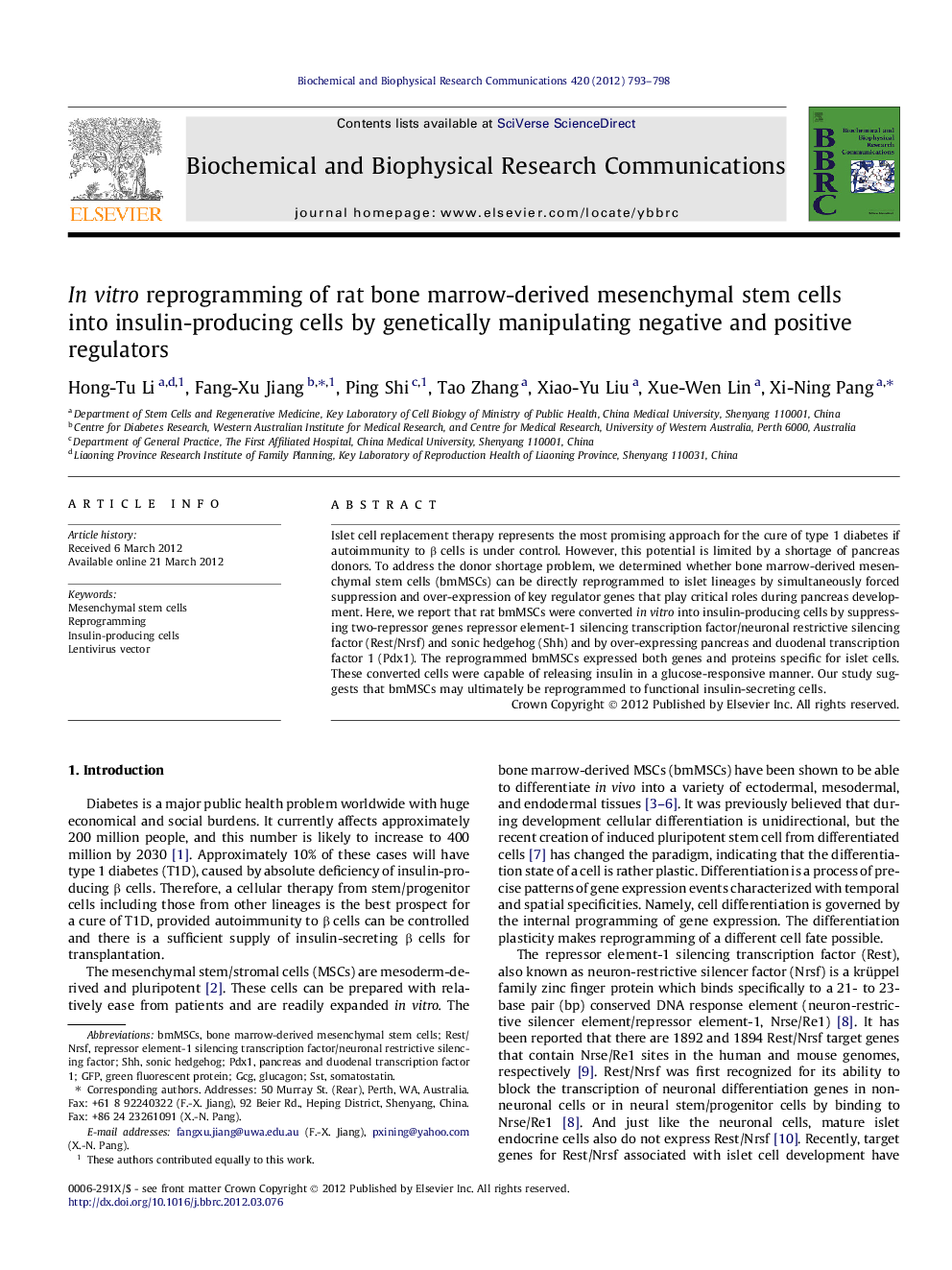| Article ID | Journal | Published Year | Pages | File Type |
|---|---|---|---|---|
| 1929562 | Biochemical and Biophysical Research Communications | 2012 | 6 Pages |
Islet cell replacement therapy represents the most promising approach for the cure of type 1 diabetes if autoimmunity to β cells is under control. However, this potential is limited by a shortage of pancreas donors. To address the donor shortage problem, we determined whether bone marrow-derived mesenchymal stem cells (bmMSCs) can be directly reprogrammed to islet lineages by simultaneously forced suppression and over-expression of key regulator genes that play critical roles during pancreas development. Here, we report that rat bmMSCs were converted in vitro into insulin-producing cells by suppressing two-repressor genes repressor element-1 silencing transcription factor/neuronal restrictive silencing factor (Rest/Nrsf) and sonic hedgehog (Shh) and by over-expressing pancreas and duodenal transcription factor 1 (Pdx1). The reprogrammed bmMSCs expressed both genes and proteins specific for islet cells. These converted cells were capable of releasing insulin in a glucose-responsive manner. Our study suggests that bmMSCs may ultimately be reprogrammed to functional insulin-secreting cells.
► Rat bmMSCs can be converted into insulin-producing cells by reprogramming in vitro. ► These converted cells can release insulin in a glucose-responsive manner. ► Rat bmMSCs may ultimately be reprogrammed to functional insulin-secreting cells.
